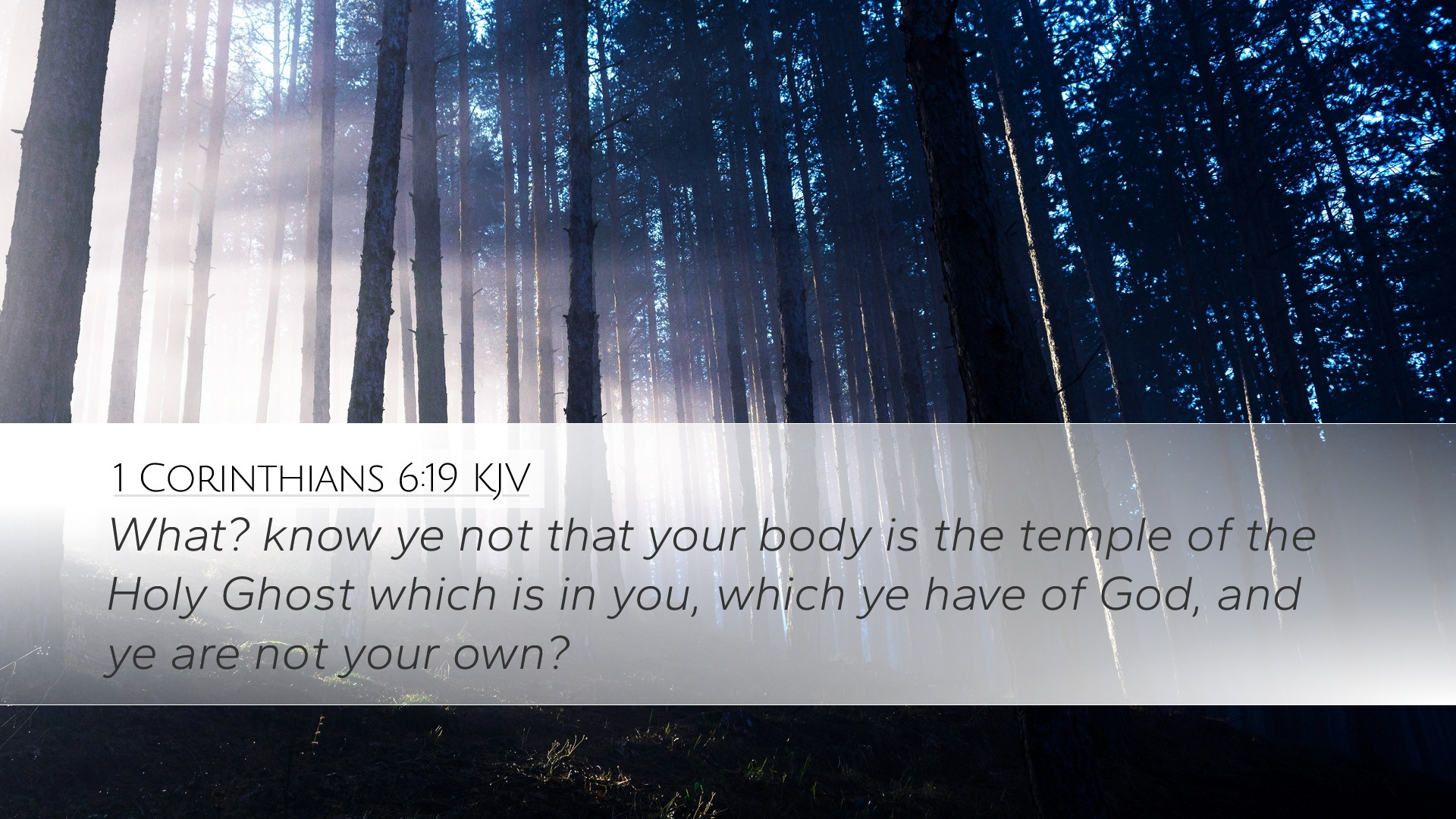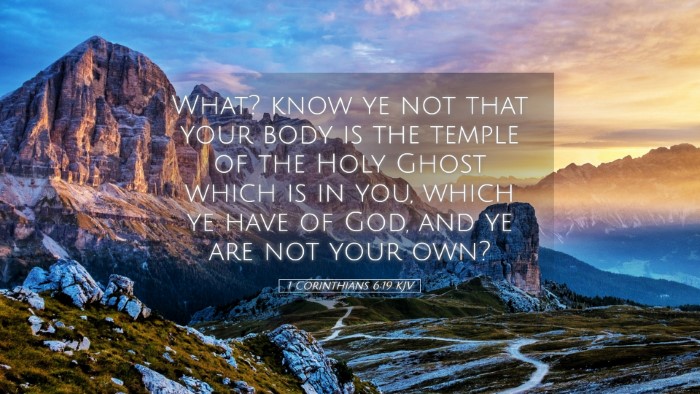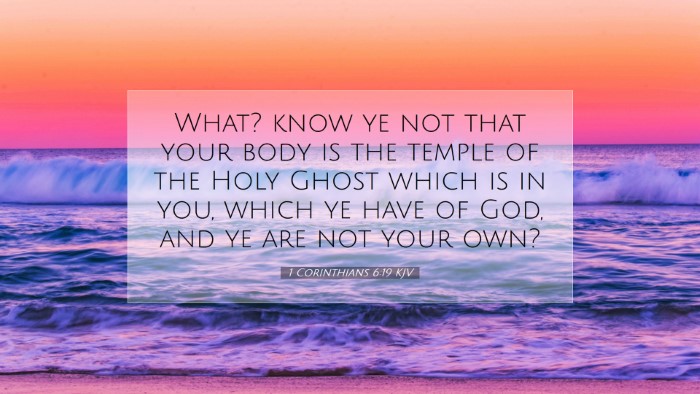Old Testament
Genesis Exodus Leviticus Numbers Deuteronomy Joshua Judges Ruth 1 Samuel 2 Samuel 1 Kings 2 Kings 1 Chronicles 2 Chronicles Ezra Nehemiah Esther Job Psalms Proverbs Ecclesiastes Song of Solomon Isaiah Jeremiah Lamentations Ezekiel Daniel Hosea Joel Amos Obadiah Jonah Micah Nahum Habakkuk Zephaniah Haggai Zechariah MalachiVerse
1 Corinthians 6:1 1 Corinthians 6:2 1 Corinthians 6:3 1 Corinthians 6:4 1 Corinthians 6:5 1 Corinthians 6:6 1 Corinthians 6:7 1 Corinthians 6:8 1 Corinthians 6:9 1 Corinthians 6:10 1 Corinthians 6:11 1 Corinthians 6:12 1 Corinthians 6:13 1 Corinthians 6:14 1 Corinthians 6:15 1 Corinthians 6:16 1 Corinthians 6:17 1 Corinthians 6:18 1 Corinthians 6:19 1 Corinthians 6:20

